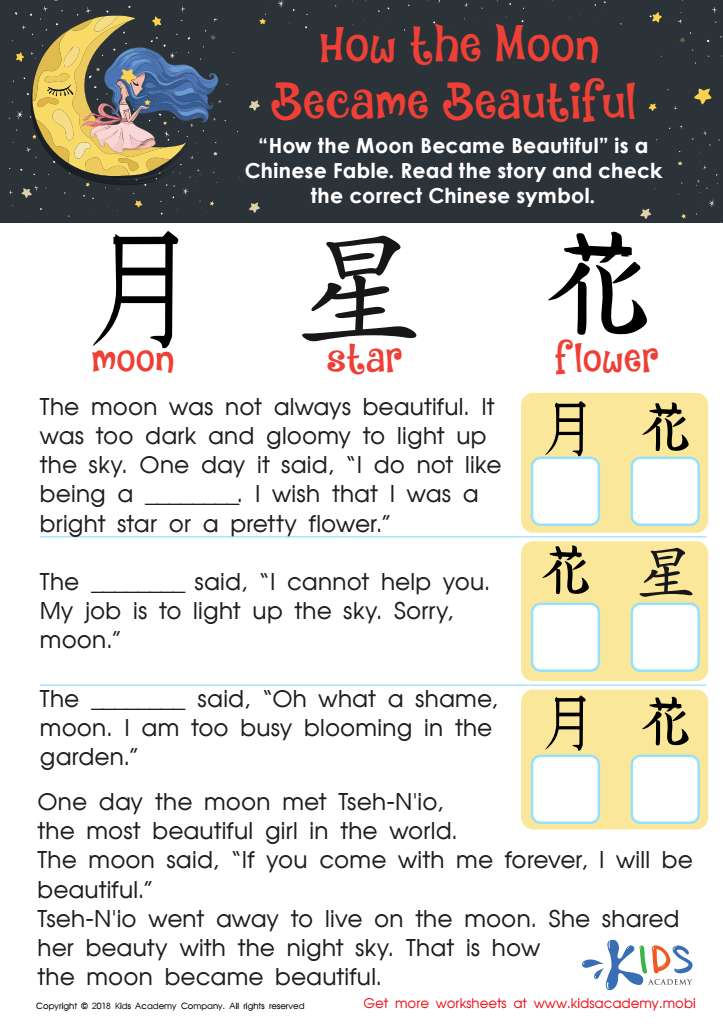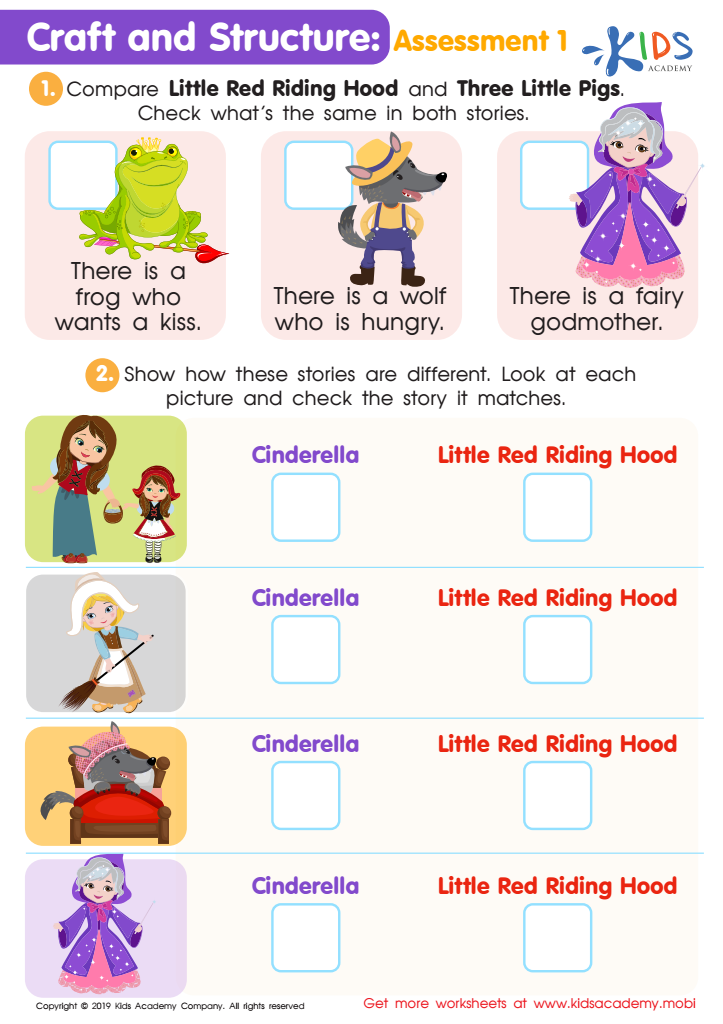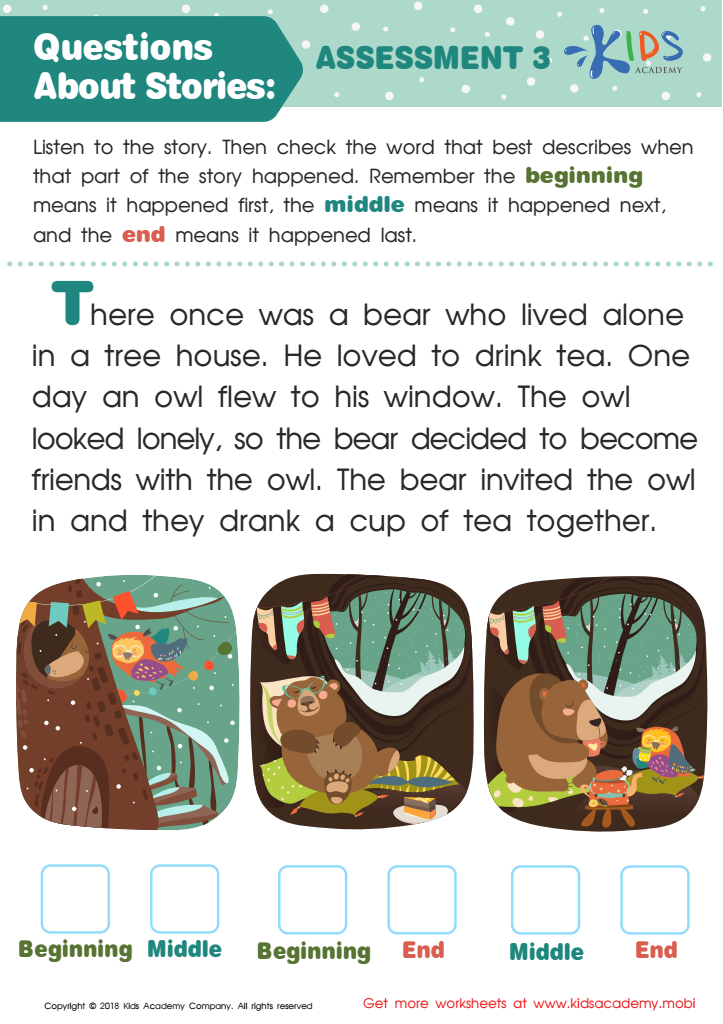Answering questions Reading Fiction Worksheets for Ages 4-7
3 filtered results
-
From - To
Discover our engaging "Answering Questions Reading Fiction Worksheets" designed specifically for children aged 4-7! These worksheets enhance reading comprehension by encouraging young learners to read short fictional passages and then answer fun, age-appropriate questions. The activities help improve critical thinking skills and ensure kids understand the story’s key elements. Our easy-to-use printable format makes it simple for teachers and parents to incorporate reading practice at home or in the classroom. Foster a love for reading and build confidence in your child's abilities through these exciting worksheets. Explore our collection today and ignite your child's imagination through the magic of storytelling!


How the Moon Became Beautiful Worksheet


Craft and Structure: Assessment 1 Worksheet


Questions About Stories: Assessment 3 Worksheet
Answering questions while reading fiction to children aged 4-7 is essential for several reasons. First, it fosters critical thinking skills. When children are encouraged to ask and answer questions, they learn to analyze the storyline and characters, developing their ability to interpret information and think deeply about what they read. This skill is foundational for lifelong learning.
Second, it enhances comprehension. Engaging with the text through questions helps young readers clarify their understanding, monitor their thoughts, and make connections to their own experiences. By relating the content to their lives, children become more invested in the story, leading to better retention of information.
Additionally, answering questions stimulates language development. As children articulate their thoughts, they expand their vocabulary and improve their communication skills. Teachers and parents can model effective questioning techniques, which can encourage conversations and enrich literacy experiences.
Lastly, it fosters a love for reading. When children see reading as an interactive and enjoyable process—one that invites curiosity—they are more likely to cultivate a lifelong passion for books. By integrating questioning into reading practices, parents and teachers nurture not only the child’s intellectual growth but also their emotional engagement with literature.
 Assign to My Students
Assign to My Students




















